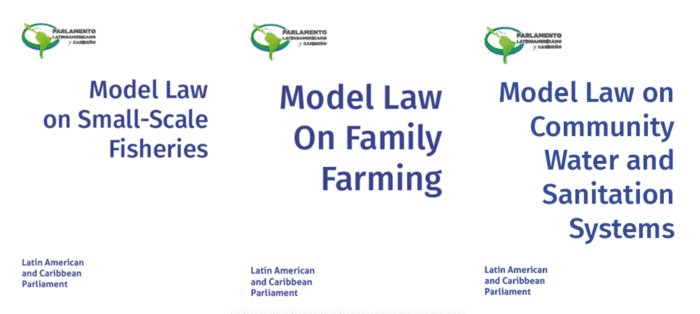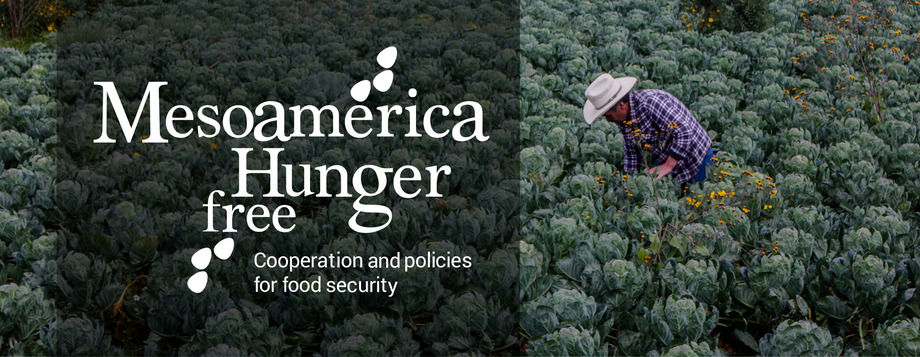Programme Objective
“Mesoamerica Hunger Free AMEXCID-FAO” programme is a south-south triangular cooperation initiative jointly led by the Government of Mexico, through the Mexican Agency of International Cooperation for Development (AMEXCID), and the Food and Agriculture Organization of the United Nations (FAO).
The Programme works closely with institutions of Belize, Colombia, Costa Rica, El Salvador, Guatemala, Honduras, Mexico, Nicaragua, Panama and the Dominican Republic, to help public actors to be in a better position to offer relevant and effective solutions to the challenges and deficiencies that affect the food and nutritional security of the most vulnerable rural population.
To this end, “Mesoamerica Hunger Free AMEXCID-FAO” focuses its efforts on supporting the generation and strengthening of enabling frameworks (public policies, regulatory instruments, and governance, management and coordination frameworks and mechanisms) that enable public actors to carry out their work adequately and with full capacity, in order to:
- promote healthy diets for the entire population, including the most vulnerable;
- facilitate equitable access of the most vulnerable rural population to the resources needed to generate sustainable livelihoods; and
- put in place inclusive institutional mechanisms that enable the indigenous and agro-descendant population, rural women and youth to have equal access to opportunities.
In this way, “Mesoamerica Hunger Free AMEXCID-FAO” contributes to achieving the goals established in the United Nations 2030 Agenda for Sustainable Development, as well as the Plan for Food Security, Nutrition and Eradication of Poverty of the Community of Latin American and Caribbean States (CELAC).
Inter-institutional articulation
The Programme promotes collaboration, coordination and synergy generation among local, national and regional entities, channeling efforts to address jointly the priority needs and development challenges of lagging behind territories, and facilitating the mobilization of resources and their more efficient use.
This is how “Mesoamerica Hunger Free AMEXCID-FAO” becomes a catalyst, an instrument to strengthen the historical ties among the countries of the region, joining wills and commitments in the fight against hunger and rural poverty.
“Mesoamerica Hunger Free AMEXCID-FAO” strongly encourages and supports social and political dialogue and promotes enabling frameworks in the ten countries with which it works. The promotion of other processes at local and Mesoamerican levels complements this work at a national level. In this context, the partnerships that the Programme has established with the Latin American and Caribbean Parliament (Parlatino), the Parliamentary Front against Hunger of Latin America and the Caribbean (FPH), the Integration and Development Project of Mesoamerica, as well as Spanish Cooperation and Brasilian Cooperation are worth mentioning.
At a regional level, the contribution of "Mesoamerica Hunger Free AMEXCID-FAO" with Parlatino is noteworthy, so that the knowledge generated and systematized within the framework of the Programme can be used as a reference in the formulation and application of regulatory instruments. Model Laws on Family Farming, Small-Scale Fisheries and Community Water and Sanitation Systems are some of the results of this fruitful collaboration.

Download Model Law on Small-Scale Fisheries in Spanish, English, Portuguese or French
Download Model Law On Family Farming in Spanish, English, Portuguese or French
Download Model Law on Community Water and Sanitation Systems in Spanish, English, Portuguese or French
Furthermore, the Programme's work focuses on consolidating and strengthenind the FPH chapters in each of the Mesoamerican countries, allowing for the exchange of experiences and knowledge. In addition, "Mesoamerica Hunger Free AMEXCID-FAO" supports the development of university research on the human right to adequate food, in close collaboration with the Right to Food Observatory of Latin America and the Caribbean.

